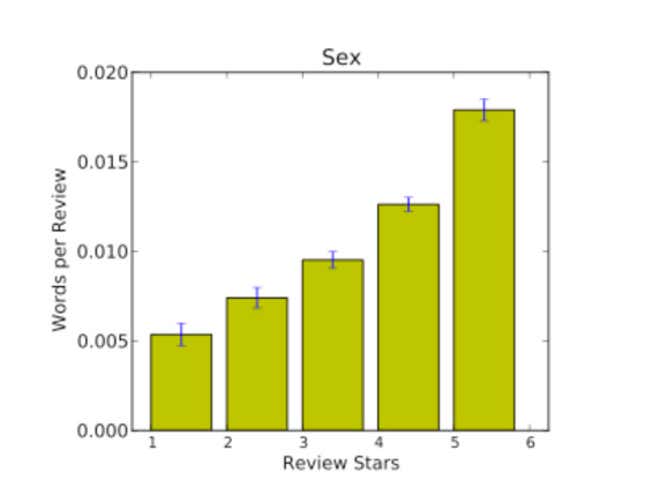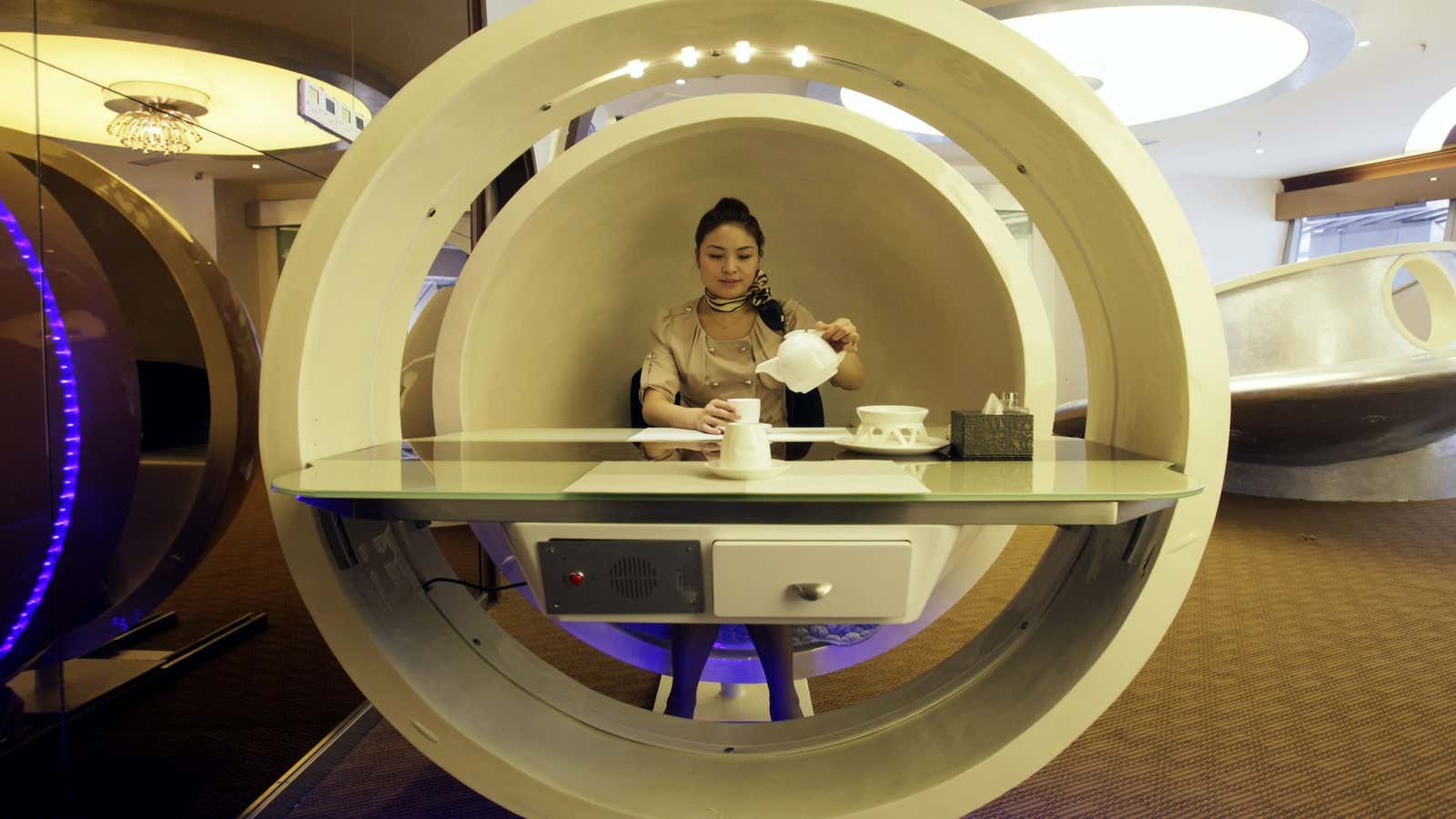When we talk about the food we like most, we often use the language of sex and drugs—sensuality and addiction. That’s what a study of nearly 900,000 online amateur restaurant reviews (covering 6,548 restaurants) found. And researchers say those linguistic patterns offer insights into the way we eat—and how we feel about it afterwards.
The recent study, led by Dan Jurafsky, professor of linguistics and computer at Stanford University, analyzed the crowd-sourced local reviews website Yelp. They looked only at English-language reviews of restaurants in the United States, so results might vary in other cultures. But in the US, food reviews used more sensuous, carnal words with every added star. The researchers looked for words such as “orgasmic,” “voluptuous,” “sultry,” “food porn,” and, most straightforwardly, “sexy.”

Interestingly, sensual descriptions of food varied based on the price of the restaurant: The more expensive the food, the more likely a positive review was to reference sex. High-class eateries inspired longer, “fancier” words, as well.
Meanwhile, positive reviews for cheaper restaurants focused on drug and addiction analogies:

While an expensive plate of filet mignon might be “orgasmic,” the taco truck was more likely to sell edibles that were “like crack” or the Yelp reviewer’s “drug of choice.” Pizza, burgers, sushi, and sweets are apparently most addicting.
Women were more likely to use drug metaphors than men (gender was estimated based on reviewers’ first names). Previous research, the authors noted, has found that women are more likely to express food cravings than men, though it isn’t clear whether they also experience them more.
The drug analogy suggests some measure of guilt: The diner knows those donuts aren’t healthy, and wishes she could control herself, but they’re impossible to resist. But while delicious food at a fine eatery may be delightfully sinful, it’s not a shameful slip of willpower—just a guilty pleasure.
